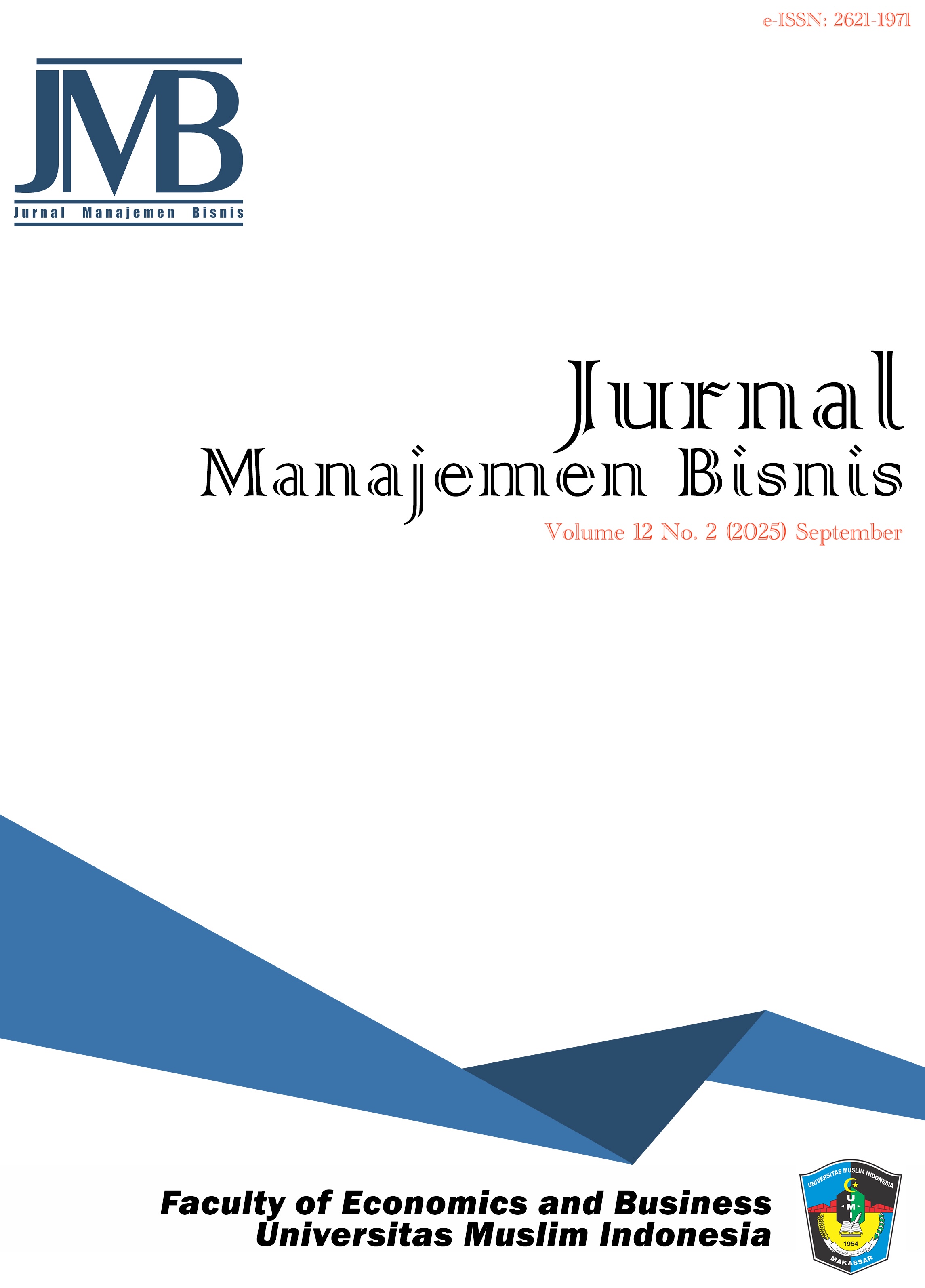Improving Competitive Advantage from Costumer Perspective: Strategic Approaches in Indonesia’s Telecom Sector
DOI:
https://doi.org/10.33096/jmb.v12i2.1163Keywords:
Competitive advantage, Digital innovation, Market share, Porter’s five forces, Telecommunications industryAbstract
This study examines Smartfren’s market position, competitive advantage, and growth prospects amid Telkomsel’s market dominance. It employs primary survey data from users and professionals and secondary industry reports, analyzed through a quantitative approach and Porter’s Five Forces framework. The findings reveal Telkomsel’s superiority in market share, network coverage, and technological innovation, while Smartfren offers stronger value in pricing and economic appeal. High industry rivalry, strong buyer power, and rising digital substitutes push both providers to innovate continuously. The study offers strategic insights for telecom firms and policymakers, and recommends broader sampling, inclusion of more operators, longitudinal analysis, and further research on consumer behavior and digital ecosystems.
Downloads
References
Chandra, D., Yusnita, S., Sitepu, D. B., Rusfandi, -, & Meidelfi, D. (2021). The analysis of service integrity on video streaming services using time division Duplex and frequency division Duplex technology on LTE networks. International Journal of Advanced Science Computing and Engineering, 3(2), 73–87. https://doi.org/10.62527/ijasce.3.2.65
Indonesia Country Commercial Guide. (2024, January 9). Information and telecommunications technology. International Trade Administration. https://www.trade.gov/country-commercial-guides/indonesia-information-and-telecommunications-technology
Kominfo. (2021). Indonesia digital roadmap 2021–2024. Ministry of Communication and Information Technology. https://www.kominfo.go.id
Kusumawardhani, A., & McCarthy, G. (2020). Strategy implementation and business performance: Evidence from Indonesian telecommunication companies. Journal of Asia Business Studies, 14(5), 627–646. https://doi.org/10.1108/JABS-02-2019-0047
Maisyarah, R. (2018). Analysis of the determinants competition Oligopoly market telecommunication industry in Indonesia. KnE Social Sciences, 3(10), 760. https://doi.org/10.18502/kss.v3i10.3170
Muhammad, A., Rusfa, R., & Tonny, S. (2023). Analysis of the quality of 4G networks on the island of Mantang with drive test method. BIO Web of Conferences, 70, 02006. https://doi.org/10.1051/bioconf/20237002006
Nunnally, J. C. (1978). An overview of psychological measurement. In B. B. Wolman (Ed.), Clinical Diagnosis of Mental Disorders (pp. 97–146). Springer US. https://doi.org/10.1007/978-1-4684-2490-4_4
Rajasekar, J., & Al Raee, M. (2013). An analysis of the telecommunication industry in the Sultanate of Oman using Michael Porter’s competitive strategy model. Competitiveness Review: An International Business Journal, 23(3), 234–259. https://doi.org/10.1108/10595421311319825
Salim, D. F., Heryanto, A., Kristanti, F. T., Beshr, B. A. H., & Riyadh, H. A. (2024). Analysis of fixed mobile convergence (FMC) product launch on telecommunication stock Returns in Indonesia. Journal of Ecohumanism, 3(3), 1253–1265.
Sirat, D., Asvial, M., & Adyawardhani, L. (2008). Mobile virtual network operator (MVNO) in Indonesia: Competitive business analysis using Porter 5 forces model [Research Paper].
Weissberger, A. (2023, November 23). Grandview research: Global telecom services market to compound at 6.2% from 2023 to 2030. IEEE ComSoc Technology Blog. https://techblog.comsoc.org/2023/11/23/grandview-research-global-telecom-services-market-to-compound-at-6-2-from-2023-to-2030/
World Bank. (2022). Indonesia’s digital economy: Opportunities and challenges [Online post]. https://www.worldbank.org/en/news/feature/2022/05/10/indonesia-s-digital-economy
Downloads
Published
Issue
Section
License
Copyright (c) 2025 Jurnal Manajemen Bisnis

This work is licensed under a Creative Commons Attribution 4.0 International License.






